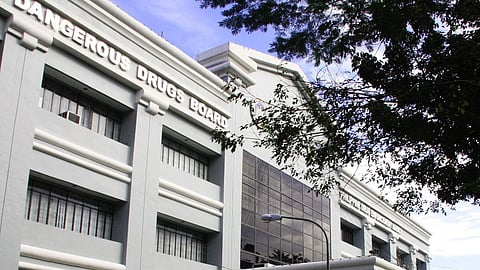
- NEWS
- the EDIT
- COMMENTARY
- BUSINESS
- LIFE
- SHOW
- ACTION
- GLOBAL GOALS
- SNAPS
- DYARYO TIRADA
- MORE

The Philippines is working toward shifting the once brutal anti-drug policy of the country into a human rights-centered approach in a bid to eventually put an end to the longstanding menace, which killed at least 7,000 individuals during the previous administration.
Key government agencies, policymakers, civil society organizations, and the academe, which took part at the Philippine Drug Policy and Law Reform Summit in Manila on Wednesday, were one in pushing for drug policy reforms that are science-based or public health-centered to curb drug dependency.
Dangerous Drugs Board Undersecretary Earl Saavedra said it's now high time to amend the Comprehensive Dangerous Drugs Act of 2002 (RA 9165) or introduce a new bill governing the country's anti-drug campaign, citing "gaps" and "loopholes" in the current law.
"Twenty years ago, since the passage of [RA 9165], we had many implementation experiences, which must be addressed," said Saavedra.
The DDB, the policymaking body on drug prevention and control pursuant to RA 9165, is keen to develop a comprehensive, integrated, unified, and balanced national drug use prevention and control strategy.
"Again, there is really a need to revisit Republic Act 9165 and introduce significant reforms to it," he added, noting that such modifications would reflect the "new face" of the Marcos administration's anti-drug campaign.
Justice Undersecretary Jesse Andres backed Saavedra's call with a firm belief that the problem with addressing drug abuse does not necessarily necessitate a brutal response.
"It is only through this shift towards a more human rights-based and public health approach that we will come up with a wider spectrum of solutions that is holistic, responsive, and more grounded—one that does not entail guns, threats, and intimidation," Andres said.
Echoing this statement, National Police Commission vice chair and executive officer Alberto Bernardo contended that drug use must be addressed with a sense of "urgency and empathy."
"Drug policy is a human concern that affects the lives of real individuals… We must strive to create policies that are not only effective but also fair, just, and humane," Bernardo said.
Stressing the urgent need to rigorously evaluate current policies and approaches to drug control, he stated that those responsible for crafting the legal framework must ensure that it aligns with human rights principles
"We shall promote rights-based policing, which includes protecting the rights of individuals who use drugs and ensuring that law enforcement practices are fair, proportionate, and non-discriminatory," he said.
In addition, he asserted that preventive measures should be holistic, addressing not only the dangers of drug use but also promoting well-being and resiliency.
President Ferdinand Marcos Jr. has openly expressed in shifting the country's anti-drug campaign into community-based treatment, rehabilitation, and reintegration—a stark contrast to the approach of his predecessor, Rodrigo Duterte, renowned for his bloody drug war.
Representatives from the United Nations have backed the Philippines' efforts to shift the punitive drug response to a more public health and human rights-based response.
Duterte's war on drugs killed roughly 7,000 people, based on the government's data.
Local and international human rights organizations, however, estimated that the death toll exceeded 30,000, affecting predominantly low-income families and communities.
